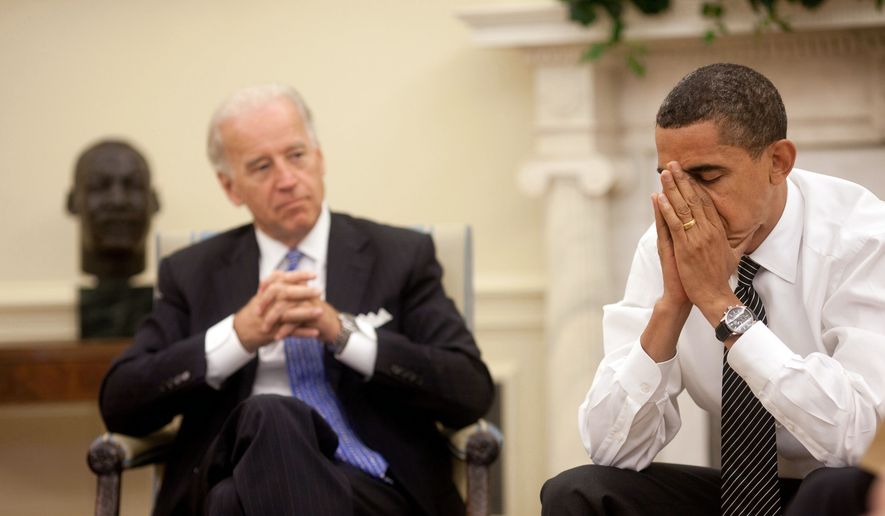U.S. efforts to head off a new China-sponsored development bank for the booming Asia region ended in abject failure this week as organizers announced nearly four dozen countries — including some of America’s closest Asian and European allies — have applied to membership, amid growing criticism of how the Obama administration handled the entire episode.
The Chinese head of the secretariat of the proposed Asian Infrastructure Investment Bank (AIIB) told an organizing conference meeting in Kazakhstan this week that 46 countries have applied to join the AIIB, including Britain, Germany, France, South Korea, India, Israel, Taiwan and Australia. Of the world’s major economies, only the U.S. and Japan are still on the outside looking in.
“The bottom line, I think, is that we screwed it up,” former Secretary of State Madeleine Albright, in a sharp critique of the administration’s handling of the issue Tuesday at the Center for Strategic and International Studies. “We should not have done it this way.”
Jin Liqun, the secretary-general of the AIIB’s secretariat, told the Kazakhstan gathering that organizers hope to have the Shanghai-based bank’s charter signed and in place by mid-year, with the bank itself opening by the end of the year.
China is putting up about $50 billion to help capitalize the bank, designed to help meet the projected trillions of dollars of infrastructure needs for the booming Asian region. Other countries are expected to contribute up to another $50 billion.
The expedited schedule represents a clear diplomatic defeat for the Obama administration, which has expressed fears the AIIB would rival the U.S.-dominated World Bank and undercut international lending standards on such issues as labor standards and corruption. The unstated fear was that Beijing was using the bank to advance its political and strategic goals in the region.
SEE ALSO: U.S. allies rush to join China’s new bank as deadline looms
But the AIIB quickly turned into a high-profile tug-of-war for influence between the U.S. and China, with China’s rising economic clout proving far stronger than the U.S. pressure.
Both Ms. Albright and Lawrence Summers, Mr. Obama’s former National Economic Council director, said this week Congress shared the blame for the diplomatic debacle for failing to pass a widely-supported International Monetary Fund reform measure designed to give rising powers such as China and India a greater say in IMF decisions to reflect their growing economic clout.
The AIIB organizing drive thus became a protest vehicle for countries chafing at U.S. and Western dominance of the established international financial bodies as the World Bank and IMF.
Chinese officials “can legitimately ask, ’Excuse me, you guys have had 5 1/2 years to support a reasonable role for us in the IMF, and you have not done it,’” Mr. Summers told a campus forum this week at Harvard, where he teaches. “… It’s a terrible reflection on our political system that we have not been able to find a compromise.”
The U.S. anti-AIIB campaign was also hurt when Jim Yong Kim, the American who heads the World Bank, said he did not necessarily see the Chinese start-up as a rival.
“From the perspective of the need for more infrastructure spending, there’s no doubt that from our perspective, we welcome the entry of the Asian Infrastructure Investment Bank.”
SEE ALSO: Obama humiliated as allies join China’s Asian Infrastructure Investment Bank
U.S. Treasury Secretary Jacob Lew appeared to soften the administration’s previous opposition to the AIIB on a trip to Beijing this week. He said the Obama administration was ready to work with the bank — from the outside for now — while remaining concerned about the potential for the new bank to undercut standards at existing institutions such as the World Bank and Manila-based Asian Development Bank.
On his return, Mr. Lew told an Asia Society meeting in California that Chinese leaders had assured him that “they aspire to meet high standards and welcome partnership.”
“Our consistent focus on standards has already had an impact and, as lending begins, the test will be the character of the projects funded and their impact on the people and countries they serve,” Mr. Lew said, according to the Agence France-Presse news service.
• David R. Sands can be reached at dsands@washingtontimes.com.




Please read our comment policy before commenting.